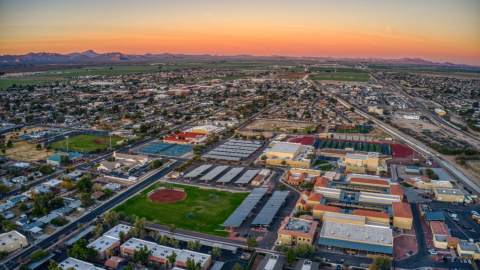BOMA Releases New Findings on Influence of COVID-19 on CRE
The International Building Owners and Managers Association (BOMA International) recently released findings from the most recent survey in its research series on the influence of COVID-19 on commercial real estate. The series is a three-part, nationwide study developed in conjunction with Yardi and Brightline Strategies.
The goal of the study was to determine perspectives on workplaces and the commercial office sector after more than two years of pandemic transformation. The survey drew responses from nearly 1,300 U.S. commercial office space decision-makers, including company owners; CEOs and other members of the C-suite; as well as vice presidents; senior vice presidents; and directors with real estate and office operations in their purview.
Notably, there was some consensus as far as the value of the physical workplace, as well as support for hybrid work and the opportunity that commercial real estate has to promote innovation and reinvent office space to better serve the future of our relationship with the work environment. Specifically, a combined 71% of respondents expressed a preference for hybrid work options — for employees to either work in a centralized office for part of the week, in a satellite office that’s closer to home or entirely remotely. Similarly, 77% of employee sentiment reflected the same range of preference.

As corporate tenants, building owners, and managers pivot toward a redefined, reimagined work environment, the survey also considered what changes (if any) were being considered. In that regard, tenant decision-makers’ feedback came with a distinction between “utilitarian investments” and “tastemaker amenities,” which focused on health, wellness and improved work/life balance convenience.
To that end, more than 70% of respondents reported supporting continued observation of COVID-19 safety protocols. Clearly, while the previously acute phases of the pandemic have passed, people understand that the virus — and the health risks associated with it — persist. This was evident in the preference expressed for utilitarian amenities, such as: continued disinfection of common spaces; continued integration of more fresh air in HVAC systems; availability of hand sanitizer; frequent deep-cleaning of the office space and office materials; and an overall clean and well-aired open space where everyone can still feel in touch, while also keeping a safe distance.
In terms of tastemaker amenities, preferences gravitated toward investing in technology that makes life easier; increased employment of green- and sustainably minded technologies; on-site or closely accessible gym facilities; dining options at reduced rates for tenant employees; as well as child and pet care facilities. These responses seemed to indicate that, if the office can’t come closer to home, employees would value the ability to bridge the distance between the office and the health- and dependent-related necessities of life outside of work.
Compared to the previous survey in the series, the number of tenant respondents reporting that they would reassess their organization’s space needs increased 15 points to reach 70%. And, while there was consensus that the physical workplace would remain at least fairly important going forward, the reassessment of office space will be based on each tenant’s workforce strategies, needs and budget.
Overall, roughly 51% of businesses reported that they were likely to reduce their square footage, while 36% responded that they were considering either expanding or not changing their office space. Notably, while about 72% of respondents said they were planning to renew their current leases, there was a significant preference for more flexibility going forward: 54% reported that they would prefer a shorter lease term of three to five years, as opposed to seven to 10 years.
Find the executive summary of this study at boma.org/covidimpact. Or, contact [email protected] to request a full copy of the latest report.










